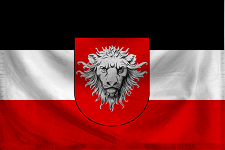

![]() by Freistaat-Ostafrika » Mon Jul 13, 2020 3:56 pm
by Freistaat-Ostafrika » Mon Jul 13, 2020 3:56 pm

![]() by The Kingdom of Apilonia » Mon Jul 13, 2020 5:55 pm
by The Kingdom of Apilonia » Mon Jul 13, 2020 5:55 pm

![]() by Freistaat-Ostafrika » Sat Aug 01, 2020 2:30 pm
by Freistaat-Ostafrika » Sat Aug 01, 2020 2:30 pm

![]() by Freistaat-Ostafrika » Sun Aug 23, 2020 10:35 am
by Freistaat-Ostafrika » Sun Aug 23, 2020 10:35 am

![]() by Freistaat-Ostafrika » Tue Sep 15, 2020 2:39 pm
by Freistaat-Ostafrika » Tue Sep 15, 2020 2:39 pm

![]() by Freistaat-Ostafrika » Sat Sep 26, 2020 5:04 pm
by Freistaat-Ostafrika » Sat Sep 26, 2020 5:04 pm

![]() by Freistaat-Ostafrika » Sun Oct 04, 2020 3:34 pm
by Freistaat-Ostafrika » Sun Oct 04, 2020 3:34 pm

![]() by Freistaat-Ostafrika » Sat Oct 10, 2020 12:22 pm
by Freistaat-Ostafrika » Sat Oct 10, 2020 12:22 pm

![]() by Freistaat-Ostafrika » Thu Oct 22, 2020 4:15 pm
by Freistaat-Ostafrika » Thu Oct 22, 2020 4:15 pm

![]() by Freistaat-Ostafrika » Mon Oct 26, 2020 3:33 pm
by Freistaat-Ostafrika » Mon Oct 26, 2020 3:33 pm

![]() by Freistaat-Ostafrika » Thu Nov 05, 2020 4:38 pm
by Freistaat-Ostafrika » Thu Nov 05, 2020 4:38 pm

![]() by Freistaat-Ostafrika » Sun Nov 29, 2020 1:50 pm
by Freistaat-Ostafrika » Sun Nov 29, 2020 1:50 pm

![]() by Freistaat-Ostafrika » Tue Dec 29, 2020 11:46 am
by Freistaat-Ostafrika » Tue Dec 29, 2020 11:46 am

![]() by Freistaat-Ostafrika » Sun Jan 24, 2021 6:05 pm
by Freistaat-Ostafrika » Sun Jan 24, 2021 6:05 pm
Advertisement
Return to International Incidents
Users browsing this forum: European Federal Union
Advertisement